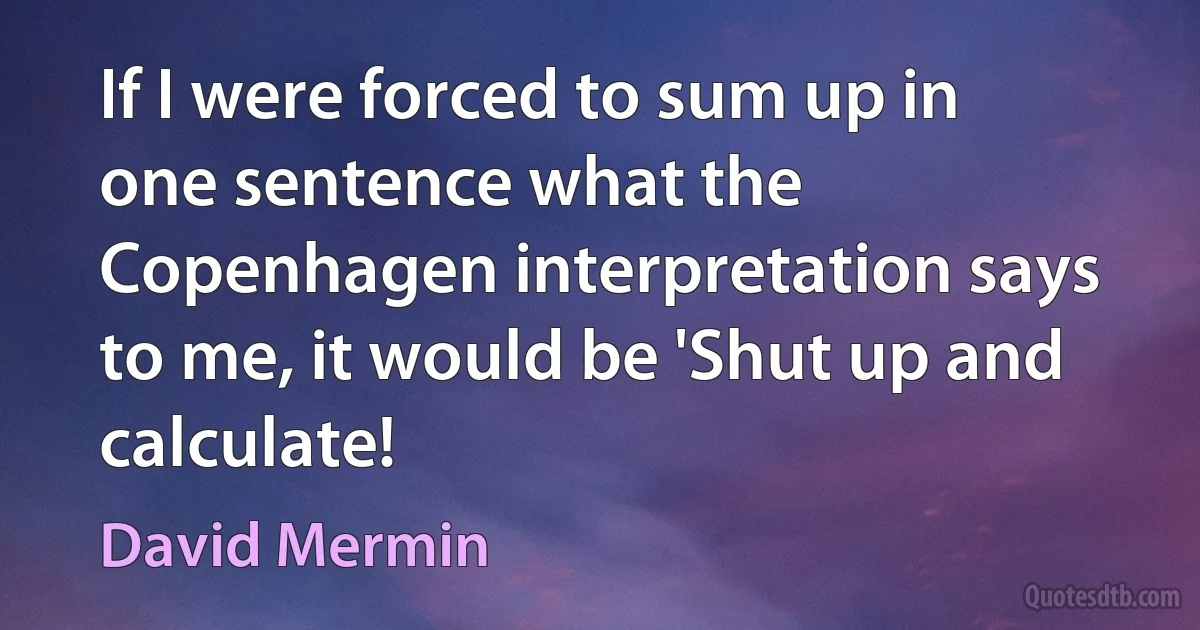David Mermin quotes
... coincident with the explosive growth of research, the art of writing science suffered a grave setback, and the stultifying convention descended that the best scientific prose should sound like a non-human author addressing a mechanical reader. ... We injure ourselves when we fail to make our discipline as clear and vibrant as we can to students - prospective scientists - and to the public who pay the taxes.

David Mermin
Quantum mechanics is the most useful and powerful theory physicists have ever devised. Yet today, nearly 90 years after its formulation, disagreement about the meaning of the theory is stronger than ever. New interpretations appear every year. None ever disappear. ... The message from QBism is this: You needn't feel guilty about never getting nervous about this stuff. You were right not to be bothered. But for the sake of intellectual coherence, you had better reexamine what you wrongly may have thought you understood perfectly well about the nature of probability.

David Mermin
It is a fundamental quantum doctrine that a measurement does not, in general, reveal a pre-existing value of the measured property. On the contrary, the outcome of a measurement is brought into being by the act of measurement itself, a joint manifestation of the state of the probed system and the probing apparatus. Precisely how the particular result of an individual measurement is brought into being-Heisenberg's "transition from the possible to the actual"-is inherently unknowable. Only the statistical distribution of many such encounters is a proper matter for scientific inquiry.

David Mermin

